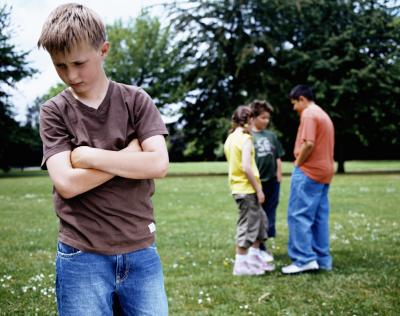It is difficult to even turn on the TV without hearing another story of bullying and the impact that it is having on today’s children. With the ever-increasing popularity of social networking sites and the ease of communication created by cell phones and the Internet, children who were once safe at home from school bullying are now feeling the effects even there. Many parents initially discount the problem of bullying, arguing that it is a challenge that children must simply overcome; however, much research indicates that the effects of bullying do not stop after the bullying ends.
Self-Image Injury
During childhood, individuals develop their self-image. If the period of time in which an individual is developing his self-image is filled with negative influences and bullying, his self-image may be injured. Even as the individual continues to age and learns that the things negative he was told about himself during childhood are not true, he may still struggle to overcome this negative self-image he developed in his youth and view himself in a positive light.
Impact of Bullying on Education
As Education.com reports, children who are bullied are more likely to miss school. This increased absence frequency is often due to the child’s attempt to escape from the bullying or avoid the aggressors. While missing a day or two here and there is not big deal, if a child misses a substantial amount of school due to bullying, he may miss out on valuable academic lessons. These missed lessons can have an impact on the child’s future academic performance and even his preparedness for the world of work.
Physical Effects of Bullying
The old adage, “sticks and stones may break my bones, but words can never hurt me,” is actually far from true, reports Education.com. In truth, children who are bullied can suffer physical discomfort as a result of this bullying, and this discomfort can extend into adulthood. Individuals who were bullied as children often report of physical symptoms such as headaches and stomach pains, discomfort that many attribute the the stress associated with being bullied.
Future Substance Abuse Risks
Victims of bullying are more likely to become substance abusers in adulthood, reports El Paso Mental Health and Mental Retardation. While the exact reason for this increased risk of substance abuse isn’t known, many hypothesize that it is in response to the pain associated with being bullied and that these past bully victims may turn to drugs and alcohol for the numbing effect offered by each.
Effect of Perceived Control
The degree to which an individual continues to suffer from the effects of bullying into adulthood depends in large part upon perceived control. Perceived control is the degree to which the bullied individual felt able to stop the bullying, reports El Paso Mental Health and Mental Retardation. Those who felt that they had some power to stop the tormenting are less likely to suffer from the effects of bullying long term than those who did not, reports this source.





